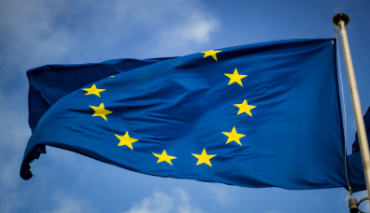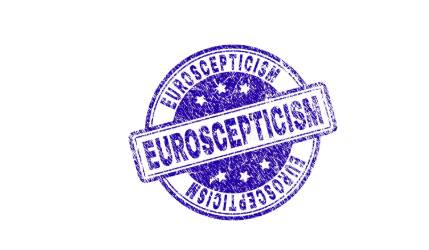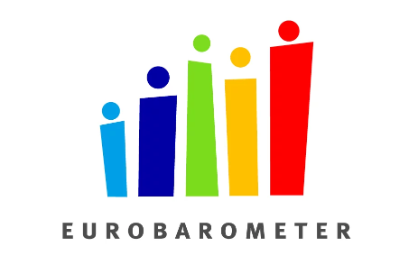What do Europeans think about the EU?
Author: Miruna-Antonia Aniculăesei
Read time: 3:28
Since 1974, the European Union, formerly known as the European Communities, has been conducting the Standard Eurobarometer survey as a way to spread information about the organisation itself and gather support, as well as as a method of measuring the public level of satisfaction towards the EU. For almost 51 years, the Eurobarometer has shown the EU publics’ overall opinion on a diverse selection of EU matters and the way in which these opinions shift in response to crises After a turbulent period of crises, one would expect a decrease in public support for the Union, but what do the public opinion polls actually tell us about citizens’ reactions?
Last year’s Eurobarometer, on the occasion of its 50th anniversary, analysed the European citizens’ level of satisfaction with, their support for and their opinion of the EU. The survey showed an increase in terms of satisfaction with how the EU works, how democracy within it functions and how much the Member States benefited from their memberships. Additionally, it portrayed the Euro as a “success story”, with 70% of interviewees being in favour, along with a strengthened sense of belonging. Another intriguing find is the rise in confidence in science and technology, as well as their perceived usefulness. Furthermore, all responses maintained optimistic views on the EU's economic power and on matters related to representation within the organisation. Even so, the EU still seems to struggle with democratic legitimacy, since the majority (49%) still feels that citizen voices do not have sufficient influence on policy outcomes and other concerned areas. Nonetheless, the Eurobarometer continues to paint a European public that welcomes the EU and further integration.
The most recent survey, conducted by the European Parliament between January and February 2025, highlighted the priorities of European citizens. According to the survey, 66% of those interviewed wish that the EU had a more important role in tackling global crises. Among the issues inquired upon, inflation, rising prices and living costs are the ones that, in the public’s opinion, need to be resolved urgently, along with better-strengthened defence and security areas. The latter even echoed the Polish Council’s set priorities for the current presidential term. Moreover, multiple questions on the survey addressed the publics’ thoughts on the EU and its core values. As such, strong majorities believe that their countries have benefited from EU membership (74%) and that more unity is strongly needed (89%).
The opinion on the EU has improved from last year’s Eurobarometer, and the main three values, namely peace, democracy and human rights, have relatively maintained the same amount of support. However, the majority of interviewees also believe that there will be a visible decline in the standards of living in the following years, while a decline has been noticed with regard to the extent to which EU membership actually encourages Member States to collaborate. In summary, the Winter Survey, similarly to the one conducted in2024 , has shown a rather positive outlook on the EU, despite the aforementioned exceptions.
However, on one hand, there currently seems to be a strong Eurosceptic sentiment in national politics, and increasingly so within the EP. Due to the inarguable rise of radical right politics, it would not be far-fetched to believe that the anti-EU discourse has had an impact on how the public perceives the EU. On the other hand, the Eurobarometer’s supportive results persist, despite the Eurosceptic trend. This dichotomy could be traced back to the credibility and representativeness issues of the Eurobarometer, and to the selective exaggeration of the power of anti-EU parties in the national press.
Because of this, when analysing the Eurobarometer, attention must be paid to the way questions are posed: specifically whether they are “leading” towards a more positive reaction, and to the response options, which may influence the choice of the citizens. On top of this, interviewees are chosen from a limited selected pool, which continues to be quite limited in size (generally around 1000), not fully representing all age groups or people of all economic backgrounds equally. Even the way of conducting the survey could be problematic, since there are three different methods used.
Although the Eurobarometer is not without its flaws, the idea that the populations of member states are still quite confident in the European project is supported by the fact that radicalism has not yet caused a powerful enough imbalance in EU politics. On the national scene, in most Member States, mainstream parties continue to have a pro-EU agenda, while Euroscepticism remains restricted to the fringes of the political spectrum.
To conclude, the EU must still treat its supportive masses with caution. While the positive trend in attitudes has more or less survived the period of crises, with new challenges on the horizon, the Union cannot take support for granted anymore. It remains to be seen which measures will be adopted that will help the organisation in its mission to maintain peace within and outside of its borders.



